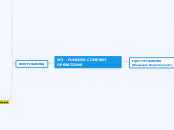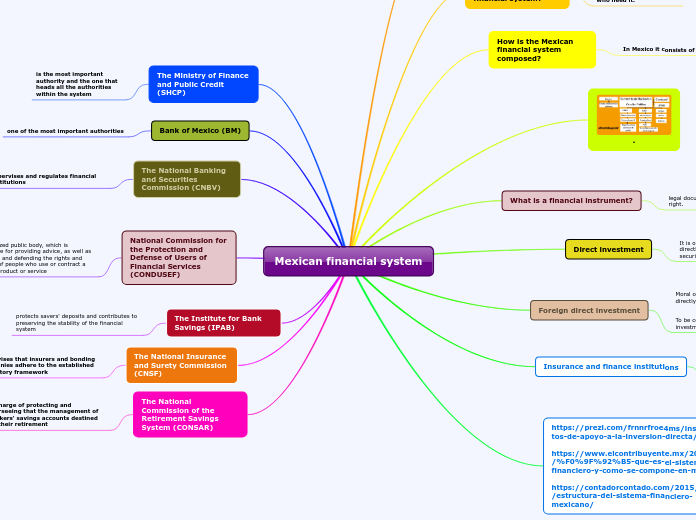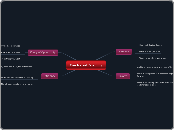W3 - FUNDING COMPANY OPERATIONS
DEBT FINANCING
Security Interest
Priorities
perfected by control security interest HAS PRIORITY OVER a security interest perfected by any other means
s57(1)
perfected security interest HAS PRIORITY OVER unperfected one
s55(3)
between perfected security interests
Through: the priority time for each
s55(5) Priority time (listed in order of priority)
Time of perfection
Time of possession/control of collateral
Time of registration
between unperfected security interests
Through: the order of attachment of each
Security Interest Enforcement
Who can enforce?
Based on s.110 of PPS 2009, the debtor, the grantor and a secured party.
Subtopic
On the default of a grantor under a security agreement, the secured party can commence enforcement action under the priority rules
s55(4) - i.e the legislation time for collateral
s55(2)
The secured party may dispose of the collateral[8] by exercising a power of sale but must give a notice to the grantor, which includes particulars of the collateral, the enforcing secured party and the manner of sale.
The enforcement provisions do not apply when a receiver or controller has been appointed to deal with property under Part 5.2 of the Corporations Act 2001 (Cth)[4].
Parties would be able to contract out of most of the enforcement provisions of the PPS Act where collateral is not used predominantly for personal, domestic or household purposes.
Security Interest Procedure
Perfection
Can occur more than a method, by both registration and possesion
Cannot occur unless there is a valid security interest, which attaches to the underlying collateral s.21
the last requirement to preserve the priority of a a security intereset
Position of other creditors of the grantor
Position of secured party
Attachment
The attachment does not need to occur before "perfection"
s 55(5) PPSA
If the security interest is registered before attachment occurs, perfection starts at the time of registration
the debtor “authenticates” a security agreement
Attach
If the security interest does not attach to collateral
It is enforceable between the debtor and the secured party
s 19(1) PPSA
Value be given for the security interest
The grantor has rights in the collateral
Do not need to be ownership rights but there needs to be some form of rights
governed by the terms and conditions the security interest and thus relates to the relationship between the secured party and the grantor
Chapter 4 of the Personal Property Securities Act 2009 (Cth) (‘PPSA’) provides general enforcement rules dealing with seizure, disposal or retention of collateral, and steps to be taken after a security interest in collateral has been enforced.
Types of Security Interest
Circulating Security Interest
current asset
Circulating asset
Example: Inventory
Current asset
Replaceable
High liquidity
Non Circulating Security Interest
Example: House
Different type of Debt Financing
Bond Issues
Unsecured Notes
Enforceable but offer no protection in the event of deforce by the company.
Debenture
(Notes secured by tangible property)
Security of Debentures
all property of borrower may be given as security
protect the Lenders: have the right to sue for breach of contract from the borrower
Company raising debt capital must comply with Chapters 2L, 6D of Corp Acts
a legally binding undertaking by company or other body to repay the debt where that debt is money deposited with or lend to the company or other body. (Corporation Act s 9)
Traditional Bond
is the debt security, where the issuer owe the holders a debt and have the obligation to repay the interest or repay the principal at the maturity date
Bank Loans
The most common form of loan capital for a business. A bank loan provide medium or long-term finance
EQUITY FINANCING
(Disclosure Requirements)
Liability for Omissions or Misstatement
Remedies
S. 729
Right to recover compensation in misleading or deceptive statement or omission
S. 728 (3)
Breach of S. 728 (1) is criminal ONLY if
Misleading deceptive statement or ommission is materially adverse from the view of an investor.
S.739 (1)
ASIC can stop further offers, issues, sale or transfer of the securities in case of
s. 715A: not clear, concise and effective
s. 728 : Misleading Deceptive
Defence
S. 733
(4)
unawareness of new matter, not liable if new matter has arisen since the lodgement of disclosure document.
(3)
If proposed directors/maker of statement publicly withdrew their consent to be named in disc doc.
(1)
reasonably relied on info given by someone else (other than a director, employee or agent)
S. 732
available for OIS and profile statements
OIS: Offer Information Statement
unaware of misleading or deceptive statements or omissions
S. 731
(only available for prospectus)
A person made all reasonable inquiries and believed the statement on reasonable grounds
many co set up a "due dilligence committees" to do this
have a proper system of checking statements
People liable for Deceptive document
S. 729 (1)
a person who violates or involves in the violation of the prohibition under s.728 (1)
a person named in the disclosure document with their consent of having made a statement
OR, that based the inclusion of other statement
that is included in the disclosure doc
an underwriter to the issue or sale named in the disclosure document with their consent
*An underwriter is often an investment bank or broker-dealer.
a person
with their consent as a proposed director of the body whose securities been offered
have name in Disclosure document
director of the company which makes the offer
offer maker
Terms
S.719
Once a person becomes aware of the Misstatement Disclosure or omission, they must
And send a replacement document
Stop making offer
S.728 (1)
A person prohibited from offering securities under a Disclosure Document if it contains
Omission of information required
Misleading or Deceptive statement
Disclosure Documents
Offer Information Statement (OIS)
Required information
s 709(4)
OIS provides an option to prospectus for small fundraisings, amount raised less than 10 million-total
Short Form Prospectus
s. 712(1)
Enable a prospectus referring to documents associated with the Australian Securities and Investments Commission (ASIC)
Profile Statements
Contents
s 714
Additional information required by the regulations or ASIC approval
Be lodged with ASIC but ASIC takes no responsibitlity of the contents
the person given the profile statement is entitled to a free copy of the prospectus
all amounts payable in respect of the securities
the nature of the risks involved in investing in the securities
The body and the nature of securities
s. 709(2)
The compulsory additional document sent with the prospectus if ASIC approved the use of profile statement instead of disclosure statement
Prospectus
Alternative Disclosure Test
Test made by the court when the plaintiff accused that the company was not providing any closure documents
Forecast
s 728(2)
Must have reasonable grounds for making the forward-looking statement
Specific info
s 711
lodgement with ASIC
expiry date
quotation
disclosure of interests, fees and benefits
terms and conditions of offer
s 710
Must disclose
If restructuring, disadvantages as well as advantages of proposed restructure
Assets and liabilities, financial position and performance, profit and losses and prospects of the body
Rights and liabilities attached to securities
Must contain all information that investors and their advisors would reasonable require to make an informed assessment
When?
Primary Trading
Exceptions
Existing security holders
S708(13)
Offers fully paid shares to the existing security holders under
Bonus share plan
Dividend reinvestment plan
Executive officers
S708(12)
No disclosure document required when offering securities to senior manager
of their spouse, parents, child, brother or sister
of a related body
of the body
= Senior manager
S9
Not director or secretary of the company
Takes part in the management of the company
Sophisticated investors
Professional investors
S9
= A trustee of a superannnuation fund with net assets = min 10mil
= A body regulated by APRA (Australian Prudential Regulation Authority)
= Financial services licensee
Experienced investors
S708(10)
Investor must sign a written acknowledgement of no disclosure document provided
Made through a financial services licensee
Licensee must approve that the investor has enough experience to assess the gains and risks
Wealthy investors
S708(8)(c)
Net assets
Minimum $2.5mil
Income
Minimum $250,000/year for the 2 last financial years
Large offers
Does not include the company's loans
Minimum amount payable for securities = $500,000
S708(8)(a)
Small scale offerings
Amount of fund raised
< $2mil over 12 months
Number of issues
(Not number of offers)
< 20 investors over 12 months
Personal offers
To a particular person, not to the public
Rule
S706
An offer of securities for issue needs disclosure to investors unless exemptions under s708 apply.
"Issue" = primary, not secondary trading
"Securities", as defined in s92(4), are shares of a body, debentures
"Offer", as defined in s700(2), is inviting application
S727
A person is prohibited from offering securities or distributing application forms unless disclosure document has been lodged with ASIC (Australian Securities and Investments Commission)
Lodgment of disclosure document
Unquoted securities
If any incorrect information that exists in the disclosure document, parties can apply for injunction to stop the fundraising
7-day waiting period
Quoted securities (listed on ASX)
Can be given to potential investors immediately
with ASIC
S719
Breaching s727 = Criminal offence
S1311
Why?
Policy Rationale
Tool
Full and accurate disclosure of relevant information concerning the activities of PUBLIC companies
Goal
To protect the investing public
To encourage investment









